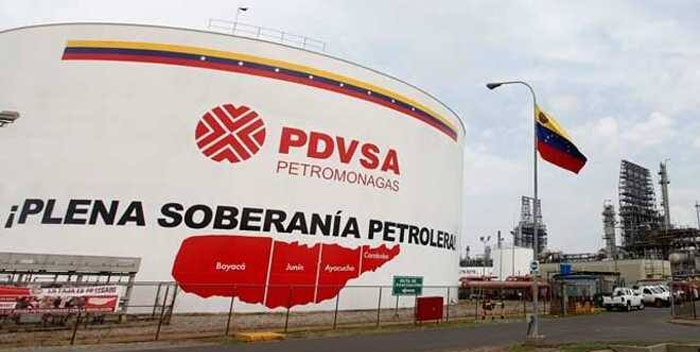NEW DELHI/HOUSTON/WASHINGTON, (Reuters) – Venezuela’s state-run oil company PDVSA has agreed to allocate cargoes to producers ONGC from India and Maurel & Prom from France to settle debts, but the deals await U.S. authorizations, two people close to the discussions said.
PDVSA in recent months assigned a 2 million-barrel cargo of heavy crude to ONGC ONGC.NS and 1 million barrels to Maurel & Prom MAUP.PA, the two firms that have progressed the most in negotiations with the state company to pay debts and late dividends, the people said.
Even though both firms agreed to the commercial terms of the deals, they have not received the oil at Venezuelan ports, the people added. Any cargo movement would need permits from the United States, which since 2019 has put restrictions on Venezuela’s oil sales under its sanction program.
PDVSA and ONGC did not reply to requests for comment. Maurel & Prom and the U.S. Treasury declined to comment.
A State Department spokesperson said the United States “does not preview sanctions,” when asked about the proposals and whether they would run counter to U.S. sanctions on Venezuela.
The requests by ONGC and Maurel & Prom for taking the oil cargoes are under consideration, a person in Washington familiar with the authorization said, but no decision has been made and there is no timetable for doing so.
The United States wants to be even-handed in how it responds to all of the requests, that person said.
PDVSA’s partners have accumulated billions of dollars in debts since 2020, when then-U.S. President Donald Trump reinforced existing sanctions by barring swaps of Venezuelan oil for fuel, which had been used to recoup payments.
The two oil firms and others with Venezuelan joint-venture operations hope to convince the Biden administration that cargoes going 100% to debt settlements would not provide cash to PDVSA or Venezuelan President Nicolas Maduro.
But making logistic arrangements for moving the oil is typically not easy. “Some companies have so far been unable to find offtakers for the crude,” one of the people familiar with the matter said.
Washington has sought to cut Venezuelan oil sales since 2019 to oust Maduro, whose 2018 re-election it calls illegitimate. The socialist leader has remained in power with the support of PDVSA, the Venezuelan military, Russia, China, Cuba and Iran.
Chevron Corp CVX.N separately has asked to be allowed to accept and trade oil cargoes for debts owed its joint ventures. That request is pending before the Treasury’s Office of Foreign Assets Control (OFAC) with no timetable for further review.
In late 2021, Italy’s ENI ENI.MI also submitted an authorization request to the United States and earlier Spain’s Repsol REP.MC sought approval, but no answers were received, two people familiar with the matter said.
Eni and Repsol declined to comment on the matter.









